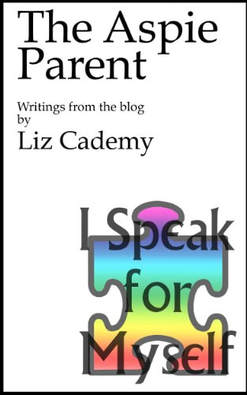The Aspie Parent, the First Two Years A Collection of Posts from the Aspie Parent Blog
by Liz Cademy, eBook Edition 2013; an Extended Review with < My Thoughts > by Sara Luker
(7% indicates the eReader book location, instead of page reference numbers).
7% I am a parent, and I have Asperger’s. One of my kids (who has the pseudonym Ocelot online) has been diagnosed with PDD-NOS, Asperger’s’ cousin.
16% Labels, Part 1. I am not a fan of labels, for many reasons.
Holding too close to a precise label can hurt our kids. Too many school districts will only provide services for students with conditions listed in the DSM (Diagnostic and Statistical Manual of Mental Disorders).
by Liz Cademy, eBook Edition 2013; an Extended Review with < My Thoughts > by Sara Luker
(7% indicates the eReader book location, instead of page reference numbers).
7% I am a parent, and I have Asperger’s. One of my kids (who has the pseudonym Ocelot online) has been diagnosed with PDD-NOS, Asperger’s’ cousin.
16% Labels, Part 1. I am not a fan of labels, for many reasons.
Holding too close to a precise label can hurt our kids. Too many school districts will only provide services for students with conditions listed in the DSM (Diagnostic and Statistical Manual of Mental Disorders).


 RSS Feed
RSS Feed